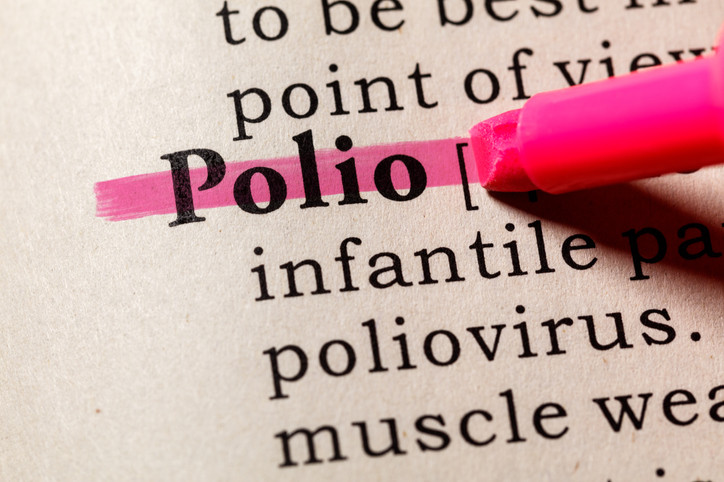Poliovirus in wastewater: Should we be concerned?

Polio is a potentially life-threatening or disabling illness that spreads from person to person. Thanks to vaccination, the United States has been polio-free since 1979, and the spread of this highly contagious disease has been interrupted in most countries. Yet on June 22, the United Kingdom Health Security Agency announced that it had detected poliovirus in a most unexpected place: the sewers of London.
Over the past several months, scientists at the agency repeatedly found poliovirus in London sewer water. The viruses were genetically similar, suggesting that they were the result of limited spread within a family or close-knit community. Just how concerned should all of us be about this news?
Health clues found in wastewater
Sampling of wastewater for genetic material from viruses is a powerful tool used by epidemiologists to track outbreaks of polio and other diseases. Surges in the amount of SARS-CoV-2 RNA in Boston wastewater have been highly predictive of COVID outbreaks. Wastewater may also help to detect the spread of influenza and antibiotic-resistant bacteria.
Poliovirus infection was once a common and dreaded disease. Most people with poliovirus either had no symptoms or mild gastroenteritis (stomach flu). But one in 100 people developed paralysis, or poliomyelitis. In half of the affected patients, this paralysis was permanent.
In the UK, wild poliovirus has been eliminated since 1984. Although great progress has been made in many parts of the world, complete eradication of polio has been elusive. Pakistan and Afghanistan have never been free from wild-type polio, and outbreaks have recently taken place in Malawi and Mozambique, countries which had previously eliminated polio.
The reasons for this backsliding are complex. Some contributing factors are diversion of scarce resources toward the COVID-19 pandemic, backlogs in vaccine manufacturing, anti-vaccine agitation, and violence directed at vaccine workers.
Another problem is vaccine-derived poliovirus. In the United States and most other countries, injections containing killed viruses are used. While these vaccines are safe, they are less effective than oral vaccines at breaking the chain of polio transmission. Oral vaccines stimulate long-lived immune responses in the lining of the intestines, where polioviruses replicate. Unfortunately, oral vaccines contain weakened but live viruses, which occasionally revert to a more dangerous form. In fact, the poliovirus found in London was a vaccine-derived strain that the infected individual had likely acquired from travel abroad.
Who is at risk for poliovirus stemming from this source?
Vaccine-derived viruses pose little risk to highly vaccinated populations, but they are able to spread in communities with low polio vaccination rates. In some cases, this can even cause paralytic disease. Because of these risks, steps are being taken to gradually phase out the use of oral polio vaccines.
If you're concerned about polio, the best protection against this disease is vaccination. Children should receive a full series of four shots of inactivated polio vaccine, given at specific intervals, that helps with developing immunity.
Nationwide, rates of childhood polio vaccination in the United States are still high (nearly 93%). However, some infectious disease experts worry that the weakening of vaccine mandates in some areas has created islands of vulnerability in this sea of immunity. Communities in the US with low childhood vaccination rates have been vulnerable to large measles outbreaks in recent years, and might also be vulnerable to polio outbreaks.
With few exceptions, adults who were fully vaccinated as kids do not need booster shots. These exceptions include travel to a country with active polio transmission, laboratory work with poliovirus, or providing health care to polio patients and their close contacts. A single lifetime booster dose of inactivated polio vaccine is adequate for these high-risk scenarios.
About the Author

John Ross, MD, FIDSA, Contributor; Editorial Advisory Board Member, Harvard Health Publishing
Disclaimer:
As a service to our readers, Harvard Health Publishing provides access to our library of archived content. Please note the date of last review or update on all articles.
No content on this site, regardless of date, should ever be used as a substitute for direct medical advice from your doctor or other qualified clinician.















